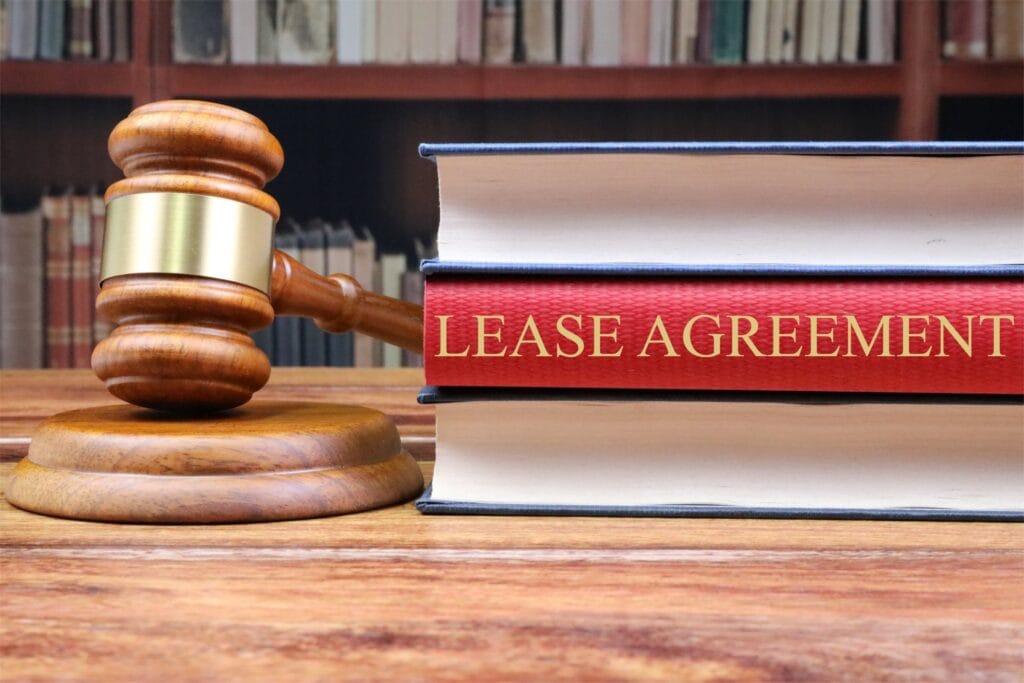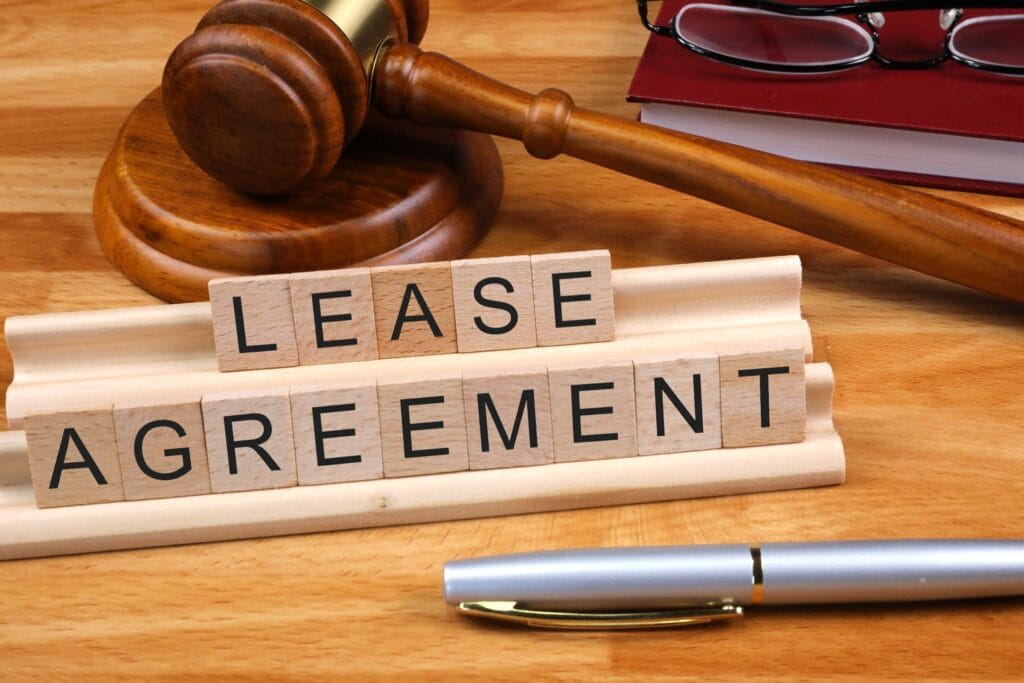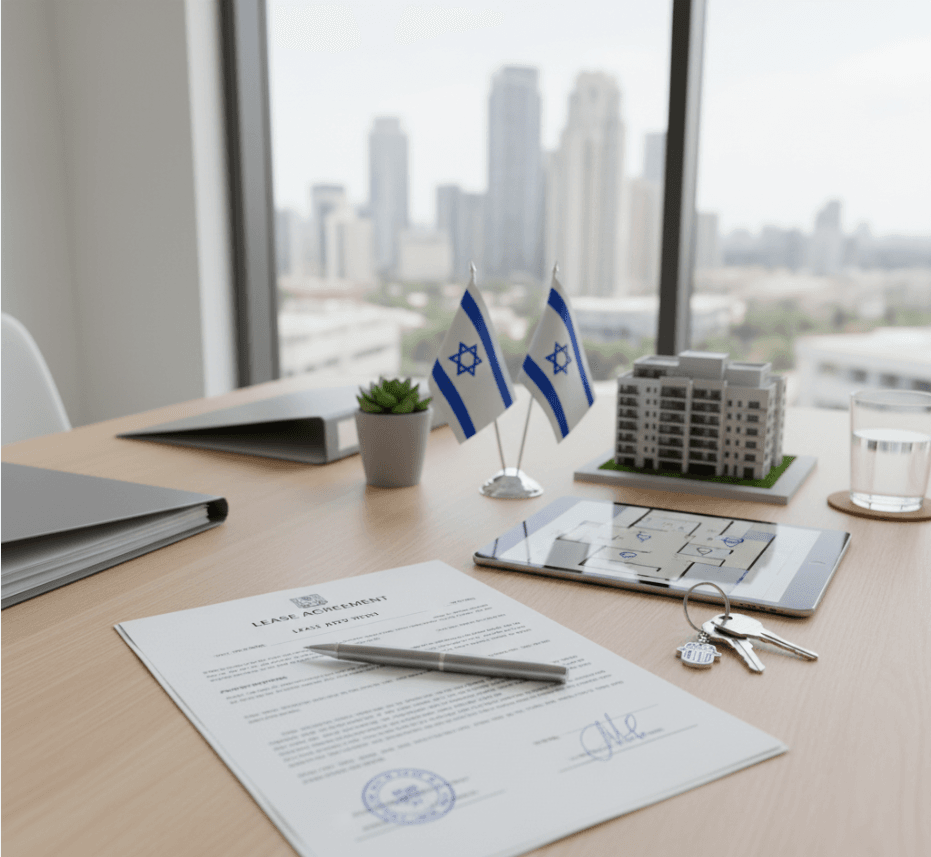
您是否正在考虑在以色列租房?无论您是因工作、留学还是投资租赁物业而搬到以色列,了解以色列公寓的租赁流程都至关重要。在以色列租房有其自身的法律规定、期望和潜在挑战。本指南将引导您完成每个步骤,从了解租赁协议到了解租户权利。
让我们了解一下在以色列签署租赁协议和租赁房产涉及哪些内容,以及如何使这个过程顺利且轻松。
了解以色列的租赁协议
什么是以色列的租赁协议?
以色列的租赁协议是一种法律合同,授予租户在特定时间内使用房产的权利,但不永久拥有该房产。以色列的大多数标准租赁协议的期限为一年,但也可以延长租期或签订更长的合同。
以色列法律中的租赁与所有权
根据以色列法律, 租 是使用和占有财产的临时权利,而 所有权 是对房产的永久权利。在以色列,租赁和拥有房产之间的区别至关重要,尤其是在处理租赁合同时。大多数租赁协议都很简单,但在签订租赁协议之前,房东和租户都需要了解某些注意事项。
主要区别:租赁赋予您临时使用该物业的权利,而所有权则赋予您永久的权利。
以色列的租赁协议类型
租户可能会遇到不同类型的租赁协议:
- 标准住宅租赁:标准租赁协议,通常期限为一年,可选择续约。这种租赁在特拉维夫、耶路撒冷和海法等城市相当常见。
- 转租协议:租户将房产出租给其他人的情况。在以色列,只有房东事先书面同意才可以转租。
- 受保护的租赁协议: 根据 租户保护法(1972年)受保护的租赁协议为租户提供了更多的稳定性和合法权利。然而,这些协议有限制,而且现在不太常见。
谁应该签署租赁协议?
确定谁将签署租约
在以色列租房时首先出现的问题之一是: 另一方将由谁签署合同?
这是转租吗?
如果租赁协议是转租,那么确保主租户获得房东的转租许可至关重要。如果没有这样的授权,转租可能不合法,并且运营可能会面临风险。原始租赁合同应明确说明是否允许转租,任何转租都必须获得房东的书面批准。
房东同意转租
租户只有在房东事先书面同意的情况下才可以转租其所租公寓。如果原房东以不合理理由反对转租公寓或提出不合理条件,租户仍可不顾房东反对将公寓出租,但前提是该行为在以色列法律规定的合理范围内。
租赁合同的授权签字人
签署租赁协议时,请确保:
- 这 房东 拥有该房产的合法租赁权(需提供权属证明或授权委托书)。
- 这 租户 (或转租人)充分了解其权利和责任。
- 任何 代理人或代表 代表房东或房客签字具有适当的法律授权。
提示:核实签署租赁协议的任何人的身份和法律地位,以避免潜在的法律纠纷。
租赁合同应包括哪些内容?

以色列租赁协议的基本要素
以色列的租赁合同必须包含特定的关键要素,才能具有法律效力和约束力。在审查或起草租赁协议时,您应该注意以下几点:
1. 基本信息
- 全名:必须包括房东、房客和任何担保人的全名。
- 房产详情:房产的完整地址,包括具体单元或公寓号码。
2. 租赁期限和续约选择
- 租期:租赁期限通常为一年,但可以更长。协议应明确起止日期。
- 续订条款:如果租约可以续签,则必须明确写明续签的条件。
3. 租金支付明细
- 月租:租金金额及每次付款的到期日。
- 付款方式:指定如何支付租金——通过银行转账、远期支票还是现金。
4. 保证金
- 金额和条件:租约中应提及押金的数额、如何保管以及退还或没收押金的条件。
- 押金用途:在什么情况下房东可以使用押金(例如用于维修或未付的租金)。
5. 维护和维修
- 房东的责任: 根据 租户保护法(1972年),房东必须确保房屋适合居住,并拥有所有必要的设施,如电力、通风、安全的门窗。
- 租户责任:租户可能负责进行小修并维护房产的清洁。
6.转租条款
如果允许转租,则必须概述条款和条件,包括是否需要房东的书面许可。
租赁协议需要公证吗?
在以色列, 租赁协议不一定需要公证。但是,必须以书面形式并由房东和房客双方签署,才具有法律约束力。即使达成口头协议,根据以色列法律,它仍然具有法律效力,但为了清晰和保护,始终建议使用书面合同。
提示:为了获得额外的安全保障,特别是对于高价值的租赁,请考虑对租赁协议进行公证或由法律专业人士审查,以确保所有方面均符合以色列法律。
以色列租户保护法
租户保护法 (1972) 规定的租户权利
这 租户保护法(1972年) 是保障以色列租户权利的一项重要立法。它确保住宅房东提供适宜居住的条件,其中包括:
- 功能性电动系统:房屋必须拥有安全且正常运行的电力系统。
- 适当的通风和自然照明:房屋应具有足够的通风口和可提供自然光的窗户。
- 担保财产:门窗必须处于良好的工作状态,包括可上锁的主入口门。
法律要求房东满足这些标准,任何试图规避或施加违反这些法律要求的条件的租赁协议都将被视为无效。
受保护的租赁协议与不受保护的租赁协议
- 受保护的租赁协议:为租户提供扩大的权利和保障,包括免于无故驱逐的保护。
- 无保护租赁协议:这些协议无法为租户提供同等程度的保障,也不受《租户保护法》的保护。租户在签订不受保护的协议时应谨慎行事,并了解其中可能存在的风险。
提示:签署无保护的租赁协议之前,请务必咨询律师,以了解潜在的风险和义务。
如何在不去以色列的情况下签署租赁协议
租赁签约数字解决方案
在当今的数字时代,远程签署租赁协议变得越来越普遍。对于那些无法亲自前往以色列完成租赁签署的人来说,可以使用数字解决方案简化流程。
数字签名平台
- Adobe Sign 和 DocuSign 是允许以安全方式签署文件的流行平台。以色列法律承认电子签名,这使得这些平台成为远程租赁签署的可行选择。
- 数字签名的好处:
- 方便:在世界任何地方签署文件。
- 具有法律约束力:只要遵循适当的程序,电子签名在以色列具有法律约束力。

聘请以色列律师代表您
如果你不能亲自到以色列签署租约, 以色列律师 可以通过 授权书.这可确保所有文书工作均能正确处理并为您归档,无需您亲自到场。
提示:始终确保代表您的律师熟悉以色列财产法,并了解您有关租赁的所有偏好和条件。
在以色列签订租赁合同的重要提示
1. 一定要有书面协议
虽然口头协议在以色列具有法律效力,但最好还是 书面租赁协议书面合同可以减少误解的风险,并为各方的责任提供明确的证据。
2. 使用英文版租约
If you do not speak 希伯来语, make sure to have an 租约英文版 准备好。这可确保双方充分理解条款和条件。以双方都熟悉的语言编写合同有助于防止纠纷。
3. 签署前咨询专家
在签署租赁协议之前,咨询专家(最好是 以色列律师. 律师可以:
- 审查租约:确保所有条款公平且合法。
- 提供租赁协议提示:针对具体条款提供建议,例如维护责任、付款条件和续约选项。
4.了解额外费用
水电费和市政税:以色列的租户通常负责支付公用事业费(电费、水费、煤气费)和 阿诺纳,这是市政财产税。在签署租约之前,请务必了解您需要承担哪些额外费用。
5. 入住前记录房产状况
为了避免租赁期结束时发生纠纷,请在搬入前记录房产状况。拍下所有房间、电器和固定装置的照片,并与房东分享。
提示:准备一份与财产有关的任何损坏或问题的清单,并将其作为租赁协议的附录。
在以色列租赁房产时应避免的常见错误
1. 不核实房东的所有权
务必核实房东是否有权出租该房产。您可以通过查看所有权文件或让您的律师向以色列土地管理局核实所有权来完成此操作。
2. 没有检查是否符合适当的维护标准
这 租户保护法 要求房东提供适合居住的房屋。入住前请确保所有系统(电气、管道等)均正常运转。如果出现问题,请要求房东在签订租约前进行维修。
3. 忽视续约条款
许多租赁协议都包含允许租户在特定条件下续租的条款。请务必了解这些条款,尤其是如果您计划续租时间超过初始租赁期。
4. 不了解转租条款就签署合同
如果您打算转租该房产,请确保租约允许转租。未经房东许可转租可能会导致驱逐和法律纠纷。
在以色列租赁房产时的主要法律考虑事项
遵守当地法律法规
在以色列租赁房产需要遵守一系列当地法律,包括:
- 租户保护法(1972年):确保房东满足基本居住要求。
- 税收法规:了解税务责任,例如 阿诺纳,对于预算和合规性至关重要。
- 租赁登记:尽管并非总是需要,但向律师登记租约是一种很好的做法,尤其是对于长期租约而言。
了解你的权利和义务
根据以色列法律,房东和房客都有权利和义务。房客有权享有适宜的居住条件、公平的待遇以及不受不合理干扰地享用房产的能力。另一方面,房客有义务按时支付租金、维护房产,并且不得将其用于非法目的。
提示:聘请律师解释您在以色列法律下的权利可以避免将来出现的潜在问题。
最后的想法:在以色列租房
在以色列租房,无论是在特拉维夫这样的繁华城市还是在较为安静的小镇,都需要仔细规划并注意法律细节。通过了解租赁流程、了解租赁协议中应包含的内容以及了解您作为租户的权利,您可以让以色列的租赁过程顺利而成功。
无论您是学生、外籍人士还是正在寻找度假屋的人,遵循这些指南将帮助您自信地驾驭租赁市场。
准备在以色列租一套公寓吗?
如果您准备在以色列租房,第一步是了解当地的租赁法律和惯例。聘请以色列房地产律师对于处理复杂的租赁协议、确保所有文件井然有序以及保护您作为租户的权利至关重要。
立即联系 Menora Law
For personalized guidance on renting property in Israel, contact Menora Law. We provide expert assistance for international clients, ensuring that the leasing process is compliant, straightforward, and secure. Let us help you rent your ideal property in Israel with confidence.


